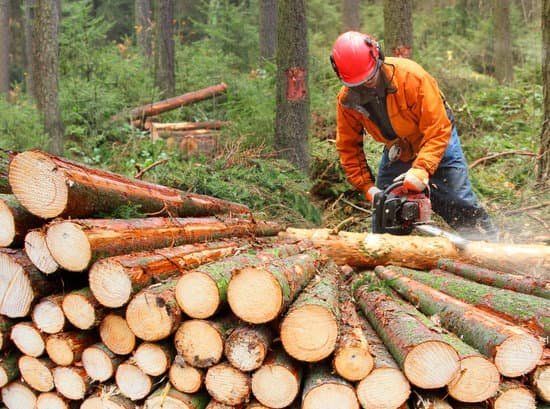Small Scale Low Impact Forestry
What is low impact forestry?
Small-scale low-impact forestry work is a great way to help maintain healthy and sustainable forests. It is less intrusive than traditional logging methods and typically involves using hand tools as well as more advanced machinery such as saws, power chippers, and winches. This type of forestry work helps to manage and restore forests in an environmentally friendly manner. Some of the benefits include promoting biodiversity, preventing soil erosion, reducing wildfire risks, preserving habitat for wildlife species, providing recreational opportunities, and helping to store carbon dioxide. Small-scale low-impact forestry work can also be used to produce fuelwood or timber products while still protecting the environment.
Sustainable Forestry Techniques
It is important that the right techniques are employed when conducting forestry activities so that minimal damage is done to the surrounding ecosystem. This includes the use of appropriate tools, properly disposing of waste, and avoiding the destruction of habitat. By practicing sustainable forestry techniques, it is possible to enjoy the benefits of harvesting wood while still protecting our forests for generations to come.
Management
With proper management and training, small-scale low impact forestry can be an invaluable asset to both our forests and our communities. By using sustainable techniques that are friendly to both the environment and local economies, we ensure that generations will continue to enjoy the natural beauty of our forests while having access to safe and affordable products as well. Small-scale low impact forestry work is an ideal way to balance the needs of our environment and our economy, while producing a positive overall outcome. Through wise management and sustainable practices, we can help ensure that our forests remain healthy for generations to come.
By understanding the science behind sustainable forestry and utilising the advanced technology available today, it is possible to create a balance between economic development and environmental conservation. This type of balanced approach allows us to provide jobs in rural regions while still protecting our
It is important to note that small-scale low-impact forestry requires careful planning, management, and training in order to be successful. It also requires investment from businesses and governments in order to ensure that it remains viable over time. By investing in sustainable practices like this, we can help to protect our forests while providing responsible sources of employment for local communities. In the long run, everyone stands to benefit from small-scale low impact forestry work - both nature itself and local populations alike.
Selective Harvesting
The process of small-scale low impact forestry starts by carefully selecting the trees for harvesting. Through selective harvesting, foresters can target particular species and sizes in order to ensure that their impacts on the environment are minimised. The harvested trees are then replaced with a mixture of native tree saplings that have been carefully chosen based on the local habitat conditions and needs. These saplings are planted in such a way that they help create habitats for different types of wildlife, as well as provide food sources for both animals and humans alike.
Small-scale low impact forestry also involves careful management of resources like water, soil and air pollution. By reducing deforestation rates and promoting regeneration, it helps to reduce carbon dioxide emissions which contribute to global warming. It also preserves existing habitats, allowing for the continued growth of biodiversity.
Overall, small-scale low impact forestry is an important part of sustainable forest management and can help reduce the environmental damage caused by large-scale clearcutting operations. By promoting regeneration in local areas, it helps to ensure that future generations will have access to healthy and functioning forests. Additionally, it provides a range of benefits including increased food sources, improved air quality, and habitat conservation. In this way, small-scale low impact forestry work helps to protect our planet's delicate ecosystems while providing essential resources for people around the world. With proper care and maintenance, these efforts can result in healthier urban spaces with greener surroundings that provide a sense of peace and serenity to those who inhabit them. By engaging in small-scale low impact forestry work, we are helping to conserve our planet's forests for future generations and ensure that these vital resources remain available for everyone.
Sustainable Forestry Management
We have extensive expertise in the area of sustainable forestry management, allowing us to provide a range of services that make a positive contribution to local communities and their environment. Our team is dedicated to working alongside local stakeholders, governments and NGOs to develop plans that create lasting changes in the areas we serve. Our projects focus on reducing deforestation, restoring degraded land and promoting forest regeneration to ensure healthy ecosystems can thrive. We also prioritise biodiversity conservation, water resource protection, fire prevention strategies and sustainable harvesting practices in order to safeguard natural resources.
At Glasgow Trees, we believe it is important to take a holistic approach when planning sustainable forestry projects. We apply best practices such as reducing the size of clearings, planting native trees and maintaining soil health in order to ensure our small scale low impact forestry work is successful and beneficial for all stakeholders involved. We also provide technical training and resources to local communities so they can learn how to properly manage their forests for generations to come.
Our commitment to sustainability has resulted in results-driven projects that are both cost effective and environmentally friendly. We have successfully implemented numerous forestry initiatives that have helped reduce deforestation, regenerate degraded land, increase water availability, improve fire management strategies and promote biodiversity conservation while providing economic benefits at the same time.
We strive to create meaningful change through our work and have been able to do this through our comprehensive training programs. Our team of experts provide technical assistance, guidance, and expertise to help local communities develop sustainable forestry systems that are adapted to their local environment.
We also use low impact forest management techniques such as close-to-nature stewardship, selective thinning, regeneration of old forests and tree planting for restoration purposes. Our goal is to create a win-win situation for all stakeholders involved; from the local communities who need access to resources, to the environment that needs protection from unsustainable practices.
Through our ongoing support and initiatives, we are making sure that forests can continue to thrive while providing essential economic benefits. We believe that by building capacity in local communities, educating them on sustainable forestry practices, and creating incentives for improved management, we can create a better future for forests and the people that depend on them. We are dedicated to helping ensure that current and future generations can benefit from the resources our forests offer.
Responsible Forest Management
We strive to provide responsible forest management services with respect for nature’s ecological balance and high environmental standards while working closely with local communities to promote their own socio-economic development. We use a combination of traditional rural knowledge, modern science, and technology to deliver sustainable solutions that will support long-term benefits for all stakeholders involved - local communities, forest ecosystems, wildlife conservation, climate change mitigation, and global markets.
We are committed to following sustainable forestry principles in order to maintain healthy ecosystems and reduce the impact of climate change. We use a variety of techniques, such as selective logging and thinning, to ensure that only trees that can be sustainably harvested are removed from forests. This approach reduces pressure on nearby wildlife habitats, preserves natural biodiversity, and maintains soil fertility over time.
Our Future Generations
Our commitment also extends beyond simply protecting existing forests; we also work with local communities to manage reforestation projects throughout our operating region. By planting new trees, we can restore depleted areas and provide economic opportunities to local populations, who then benefit from timber sales or other activities related to the conservation of those forests. Through this work, we aim to contribute towards a more sustainable future for generations to come.
We consider our approach to be one part of an ongoing effort towards climate mitigation; by reducing the human impact on existing forests, we are helping to reduce carbon emissions and preserve natural habitats. Additionally, our reforestation projects also capture carbon dioxide from the atmosphere, providing another form of climate mitigation through enhanced photosynthesis. Together these efforts represent a holistic approach towards making a lasting positive change in favor of long-term ecological health.
Ultimately our goal is to ensure a healthy, diverse and sustainable future for our forests. In addition to reducing the amount of deforestation and forest degradation, we also focus on providing communities with access to renewable resources through our low-impact forestry efforts. This way we can provide safe and reliable sources of fuelwood, fruits, nuts and medicinal plants while preserving biodiversity in the area.
We feel strongly that low impact forestry practices should be encouraged in order to reduce the human impacts on existing forests. We are committed to actively practicing these methods across all projects where feasible, in order to ensure a more sustainable future for generations to come. By taking an approach that focuses both on climate mitigation as well as access to renewable resources for local communities, we believe we can make a lasting impact for the better.
Our low impact forestry practices involve careful selection of trees, shrubs and other plants to ensure minimal disruption in the local environment. We also employ methods such as selective thinning and pruning which allows us to manage existing forests for their long term sustainability.
Additionally, we practice seed collection and replanting in order to create an evergreen forest that will provide a reliable source of fuelwood, fruits, nuts and medicinal plants for generations to come. By selecting plant species that are resistant or resilient to climate change and environmental stressors such as drought conditions, we can help enhance biodiversity and promote sustainable harvesting.
If you would like to arrange a free consultation to talk about your Low Impact Forestry requirements, then please do not hesitate in contacting us at Glasgow Trees to book an appointment with one of our team.



